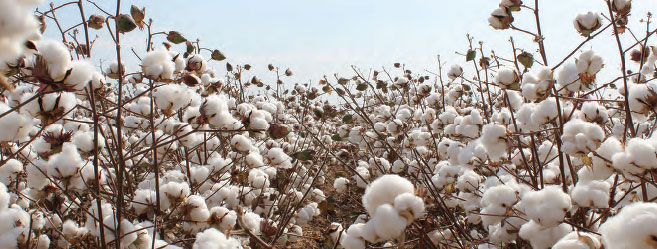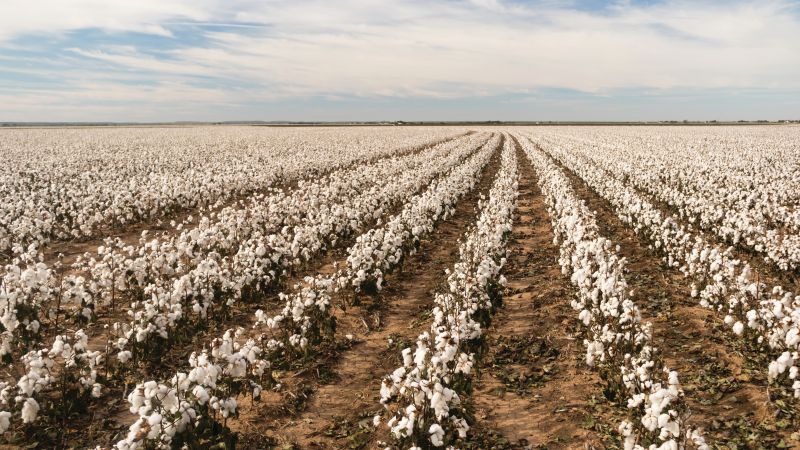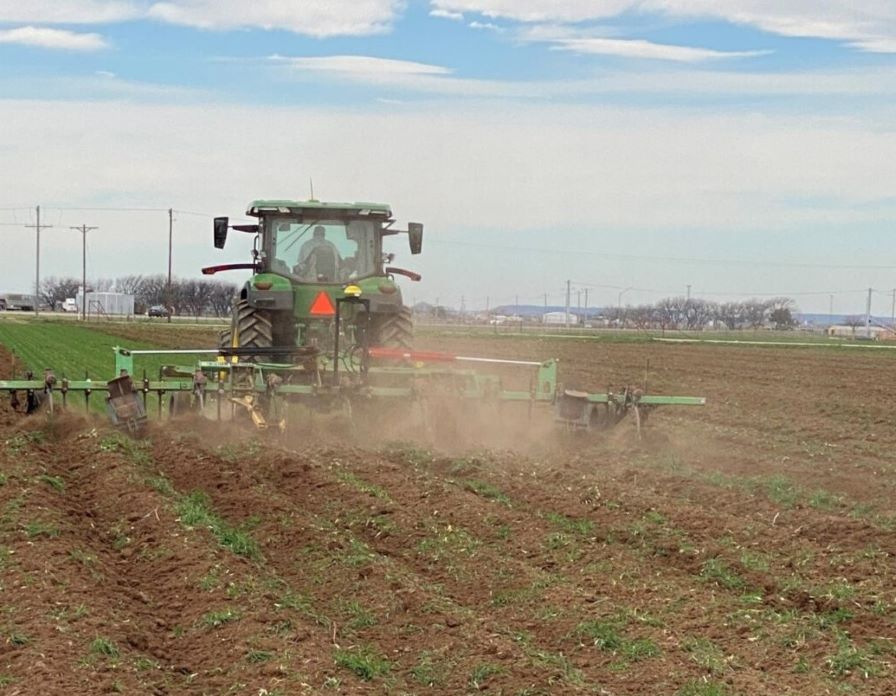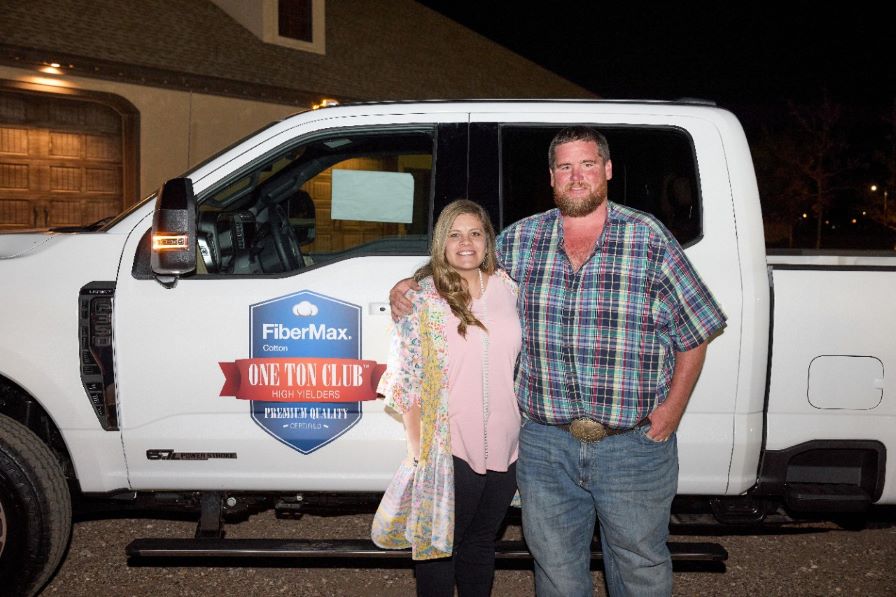Weaving Sustainability into the Cotton Industry
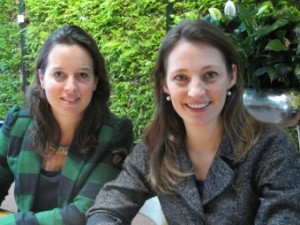
The Better Cotton Initiative (BCI) was launched to stimulate and support sustainability in the cotton industry and make Better Cotton a viable mainstream commodity. In 2009, to speed up this process, an alliance of major retailers and non-government organizations (NGOs) launched the Better Cotton Fast Track Program, aiming to support the long-term goals of BCI. One of the first milestones of the Fast Track Program is a supply of 1 million tonnes of Better Cotton lint by 2015.
Although widely perceived as a “natural” product, cotton cultivation involves the intensive use of water, fertilizer and pesticides.
Most cotton growers are illiterate and live in poverty. The complex supply chain lacks visibility, and at various stages – whether in production, processing or trading – short-term opportunities can appear more valuable than long-term security.
Given these conditions, BCI has pledged to make global cotton production better for the people who produce it, for the environment it grows in, and for the future of the cotton sector. It is currently the only initiative of its kind that aims for mass-market transformation as an explicit goal. BCI is recognized by leading cotton companies as the standard for more sustainable cotton production in mainstream markets.
The Better Cotton Fast Track Program (BCFTP) group consists of IKEA, Adidas, Marks & Spencer, H&M, Levi Strauss & Co., Nike, Walmart, the World Wildlife Fund and Solidaridad.
The program aims to accelerate the performance of the BCI system through a demand-driven strategy. Implementation is based on retailers’ investments in farmer support, with each retailer investment being matched through a fund created by Rabobank, a Dutch financial cooperative, the Sustainable Trade Initiative (IDH) and ICCO, an inter-church organization working in 41 countries in Africa, Asia, Latin America and Eastern Europe to encourage development.
Engaging a million farmers
Rabobank is the only financial institution involved in the founding of the BCFTP. Active in the global food and agribusiness industry, the bank has supported many of its clients in sustainability programs. Its Rabobank Foundation has been involved in projects that promote economic participation and self-sufficiency in developing countries since 1973. The foundation helps small-scale farmers and entrepreneurs become economically independent by providing loans and training farmer cooperatives to promote basic financial schemes and farmer services.
Cotton farming in developing countries is done mostly by smallholders on less than 5 hectares of land. “Most of these farmers live in debt and poverty,” says Iris van der Velden, Rabobank Foundation regional manager, Asia. “They have limited access to finance and therefore cannot purchase good quality farm inputs to improve their harvest. This poses a great challenge for the cotton industry to maintain a stable supply and to improve operations and traceability in their supply chain.”
Striving to improve the farmers’ incomes and stimulate supply and demand, BCFTP invests in projects that will eventually train more than a million farmers on good agricultural practices. The farmer projects are essential in achieving the target supply of 1 million tonnes of Better Cotton lint by 2015, of which BCFTP participants have committed to buying a large part.
Improving sustainability in the field is a good starting point. However, to ensure that Better Cotton is properly linked to the market and that growing demand for the product can be met requires a united effort of all supply chain players.
Compared to other commodity sectors such as cocoa and coffee, the cotton supply chain is longer and more complex. “Therefore, we must strengthen the trust among supply chain actors, and reduce risks and uncertainties,” says Anke van Kempen, sustainability advisor for Rabobank International. “People need to understand the long-term benefit of enabling Better Cotton and be more aware of the opportunities this new commodity can bring them.”
Working with Farmer Cooperatives
In addition to co-founding the BCFTP fund, Rabobank Foundation supports the program by sharing its knowledge of aggregating farmers into viable producer organizations. In the first quarter of 2012, Rabobank Foundation will co-ordinate with IDH and BCI representatives and partners to explore the various options in building farmer organizations, thereby enabling farmers to gain better access to good quality and affordable farm inputs and finance.
“It is often a big challenge for industry players to work with the beginning of the supply chain because it is not their core business,” Iris der Velden explains. “As Rabobank, working with small farmers and cooperatives is in our DNA. Our organization was established in the late 19th century as a collection of small Dutch agricultural cooperative banks. With the knowledge that we have built up for over a century, Rabobank Foundation supports 190 farmer projects per year in various agri-commodities sectors worldwide.”
Van der Velden notes that while Rabobank Foundation may not have to make a profit as a “foundation,” it is not a typical charity organization. “If we donate to a cooperative, we need to be sure that this cooperative will be able to generate its own cash flow within the next two to three years,” she says.
In contrast to other sustainability programs such as organic and Fair Trade, the Better Cotton Fast Track Program does not give price premiums to farmers. Because it is intended as a mainstream commodity, the vision is that Better Cotton should be traded at market prices.
Instead, “farmers will benefit from cost reductions achieved through the adoption of good agricultural practice and decent labor conditions,” Van der Velden explains. “We have witnessed this improvement in a project that we co-fund with Solidaridad in India. Farmers who are involved in the Better Cotton program are now spending less money on farm inputs and production.”
In addition to improving their incomes, the program has also improved farmers’ knowledge of health and safety issues.
“In one of the villages, farmers had never worn safety kits when working with pesticides because they were unaware of the risks to their health and the environment,” Van der Velden says. “Fortunately, this has changed a great deal since they entered the Better Cotton program.”
Mainstreaming Sustainability
Supporting farmer projects is just a fraction of Rabobank’s efforts in promoting sustainability. As part of its international food and agribusiness strategy, the bank proactively engages clients in corporate social responsibility.
“Just as BCI wants Better Cotton to be a mainstream product, as Rabobank, we believe that sustainability should be a regular business practice,” van Kempen says, emphasizing that sustainability is not just about risk management, but also an opportunity for improvement. “Companies are starting to realize that the condition of the environment in which they operate can affect the continuity of their business.”
Today, innovation in sourcing and supply chain management has become increasingly important. They are credited with bringing new solutions to such global challenges as commodity shortages, volatile share prices, climate change, and persisting poverty and hunger.
“Most companies are quite aware of the benefits sustainability can bring to their business,” Van Kempen says. “Nevertheless, as their bank, we feel that it is part of our responsibility to proactively engage clients, whether they are small enterprises or large multinationals, in an open dialogue in this area. Together with them, we assess the environmental, social and economic opportunities and risks that are related to their business and try to find the right solutions.
“We are very pleased to support the cotton industry in enabling Better Cotton production. We hope that our collective efforts will inspire other brands and retailers to join in,” Van Kempen concludes.




